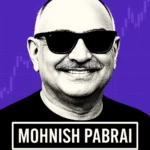
BILL ACKMAN – PERSHING SQUARE CAPITAL MANAGEMENT Q1 2025 PORTFOLIO
Pershing Square Capital Management, a hedge fund managed by Bill Ackman, disclosed 11 security holdings in its Q1 2025 13F filing, with a total portfolio value of $11,930,839,008.
Bill Ackman’s Portfolio
As of Q1 2025, Bill Ackman’s Pershing Square Capital Management portfolio showcases significant strategic shifts with a new leading position and notable adjustments across key holdings. Below is a detailed overview of the top positions and the latest moves since the previous quarter (Q4 2024).
Top Holdings
Portfolio Strategy Analysis
The addition of Uber as the largest position marks a significant strategic shift, reflecting Ackman’s confidence in the evolving transportation and delivery ecosystem. This move, combined with his increased stake in Hertz, indicates a conviction in the future of mobility services and their potential for sustained profitability.
Brookfield saw another significant increase following Q4’s addition, cementing its position as a cornerstone investment. This escalating stake underscores Ackman’s confidence in diversified asset management and real assets as a hedge against inflation and market volatility, while providing exposure to infrastructure, renewable energy, and real estate.
The simultaneous reduction in Alphabet Class C shares (-16.21%) while increasing Class A shares (+11.33%) represents an intriguing rebalancing rather than decreased conviction in Google’s parent company. This nuanced approach to Alphabet suggests Ackman is refining his exposure while maintaining a significant stake in one of tech’s dominant players.
The dramatic reduction in Hilton (-44.84%) following Q4’s substantial cut signals a methodical exit from the hospitality sector. This move likely represents profit-taking after the industry’s post-pandemic recovery, with capital being reallocated to higher-conviction opportunities like Uber and Brookfield.
The unchanged position in Restaurant Brands International and only modest reduction in Chipotle highlight Ackman’s continued faith in premium consumer brands with strong pricing power. These holdings provide the portfolio with exposure to consistent consumer spending and established brands with loyal customer bases.
Conclusion
Bill Ackman’s Q1 2025 portfolio reflects a bold strategic evolution, most notably with the addition of Uber as his largest position. This move, combined with the continued increase in Brookfield and selective reductions in Hilton and Alphabet Class C shares, signals a deliberate reallocation toward high-growth mobility services and diversified real assets.
The maintained positions in Restaurant Brands, Howard Hughes, and Chipotle provide stability through established brands and essential services, while the strategic balancing between Alphabet share classes demonstrates a sophisticated approach to tech exposure. Overall, Ackman’s Q1 adjustments suggest a forward-looking strategy that combines new growth opportunities in mobility with inflation-resistant real assets, while maintaining exposure to quality consumer brands.
Pershing Square Portfolio Analysis
Based on 13F filing for reporting period: Q1, 2025
Portfolio Manager
Bill Ackman
Filing Date
May 15, 2025
Total Value
$11,000,000,000+
Number of Positions
11
Portfolio Allocation
Holdings Breakdown
| Rank | Company Name | % of Portfolio | Q1 Activity | Ticker | Shares | Market Value ($) |
|---|






